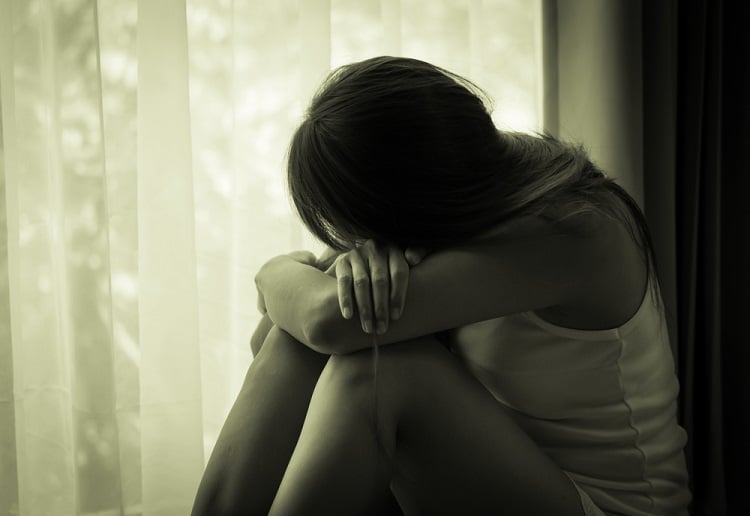Teenage heartbreak doesn’t just hurt, it can kill

(Unsplash/Noah Silliman)
Most adults recall the breakup of a romantic relationship as the most traumatic event of their youth. Research shows that breakups are the leading cause of psychological distress and a major cause of suicide among young people.
So why do we deem them trivial at worst, character-building at best?
My husband, who is the Director of the Counselling Services at the University of New Brunswick, noted that many students came to counselling presenting with a mental health issue relating to a breakup. As a researcher of intimate relationships among young people, I started working with him to track how many.
It turns out breakups were implicated in 28 per cent of the cases seen over four months. We applied time and time again for federal funding to study this topic, but got absolutely nowhere. The reviewers’ comments suggested that this topic lacked sufficient gravitas and was not compelling in light of more serious problems facing youth.
Suicide and substance use
Romantic relationships are common among adolescents and, because of their shortened duration, relationship breakups are also common. A study of 15- to 18-year-old Canadian teens found that 23 per cent had experienced a breakup in the prior six months. Common experiences, for sure, but not to be dismissed.

(Unsplash/Milada Vigerova), CC BY
Breakups are believed to be the No. 1 cause of suicides among young people. What could be more serious as a mental health issue?
In one study, 40 per cent experienced clinical depression following a romantic relationship dissolution; another 12 per cent reported moderate to severe depression.
Other adverse symptoms include sleeplessness, substance use, self-harm and intrusive thoughts. Romantic dissolution has strong physiological effects too: Recent fMRI research indicates that relationship loss shows activation and biochemical reactions similar to those experiencing drug withdrawal.
Time and again, we encountered beliefs that by virtue of being common experiences for youth, they were unimportant. Or, in another twist of logic, because most of us had to endure such breakups in our youth, all could be endured.

(Unsplash/William Stitt), CC BY
We know little about young people’s adjustment over time; we assume that the pain diminishes and they learn from experience. But do they? We think that this type of pain is an unavoidable outcome required for learning and refining relationship skills that allow us to find our “forever partner.” But is it?
Some breakups are so bad the negative outcomes adversely affect a person’s personal, social and academic functioning, and may in fact adversely affect the skills and competency required in their subsequent intimate relationships.
Wondering why your teen might be holed up in their room refusing to come out for days at a time? Or isn’t finding pleasure in the things that they used to enjoy? It might be breakup-related.
Research biases
What’s surprising to me as a researcher of intimate relationships among young people is how little research attention this topic has received. I believe the lack of research likely reflects long-standing biases that minimize or dismiss the stresses young people experience.
Like most topics that affect adults, there are thousands of studies addressing the extreme psychological aftermath of divorce and separation. The consequences of the dissolution of an adult relationship may be widespread and severe, especially when children are involved. As with adults, not all breakups among young people are difficult, but when they are, they can be equally devastating. Often they are more devastating, because there is much less concern and fewer supports designed to help adolescents regain footing.
Given that the average ages in Canada for a first marriage are now 29.1 for women and 31.1 for men, young people will spend much of their second and third decades of life in non-marital relationships. Because of these changing demographics, acquiring competence in the romantic domain is now considered a key developmental task entering adulthood. This requires significant gains in interpersonal skills for emotional and sexual intimacy, emotional regulation and communication.
We don’t know if young people develop patterns of adjustment that improve, persist or worsen after a breakup. But some research is emerging at long last.
We tracked 148 young people (aged 17 to 23 years) who had recently broken up. Higher frequency of intrusive thoughts about the breakup predicted greater distress over time, even after accounting for relationship characteristics, such as who initiated the breakup and the passage of time since breakup. However, of interest here, higher levels of deliberate reflection about how things went wrong, and what one would do differently, was related to positive growth at later assessments.
![]() So it’s true, not all breakups are bad — some adolescents are left in a better place afterwards. But we need to do better at giving credence to this difficult rite of passage.
So it’s true, not all breakups are bad — some adolescents are left in a better place afterwards. But we need to do better at giving credence to this difficult rite of passage.
This article was originally published on The Conversation. Read the original article.
Share your comments below
Shutterstock photo




















-

-
-
ashna9 said
- 31 Oct 2017
-

-
-
BellaB said
- 26 Oct 2017
-

-
-
mom94125 said
- 01 Sep 2017
-

-
-
mom101628 said
- 26 Aug 2017
-

-
-
mom94378 said
- 22 Aug 2017
-

-
-
june11 said
- 22 Aug 2017
-

-
-
natct said
- 22 Aug 2017
-

-
-
Ellen said
- 22 Aug 2017

-

-
-
taynik46 said
- 21 Aug 2017
-

-
-
mom112217 said
- 21 Aug 2017
-

-
-
mom206279 said
- 21 Aug 2017
-

-
-
cherz said
- 21 Aug 2017
-

-
-
mom93821 said
- 21 Aug 2017
Post a comment7:57 pm
1:35 am
8:21 pm
8:58 pm
8:44 pm
2:31 pm
6:08 am
3:20 am
10:42 pm
6:50 pm
3:57 pm
2:10 pm
1:25 pm
To post a review/comment please join us or login so we can allocate your points.